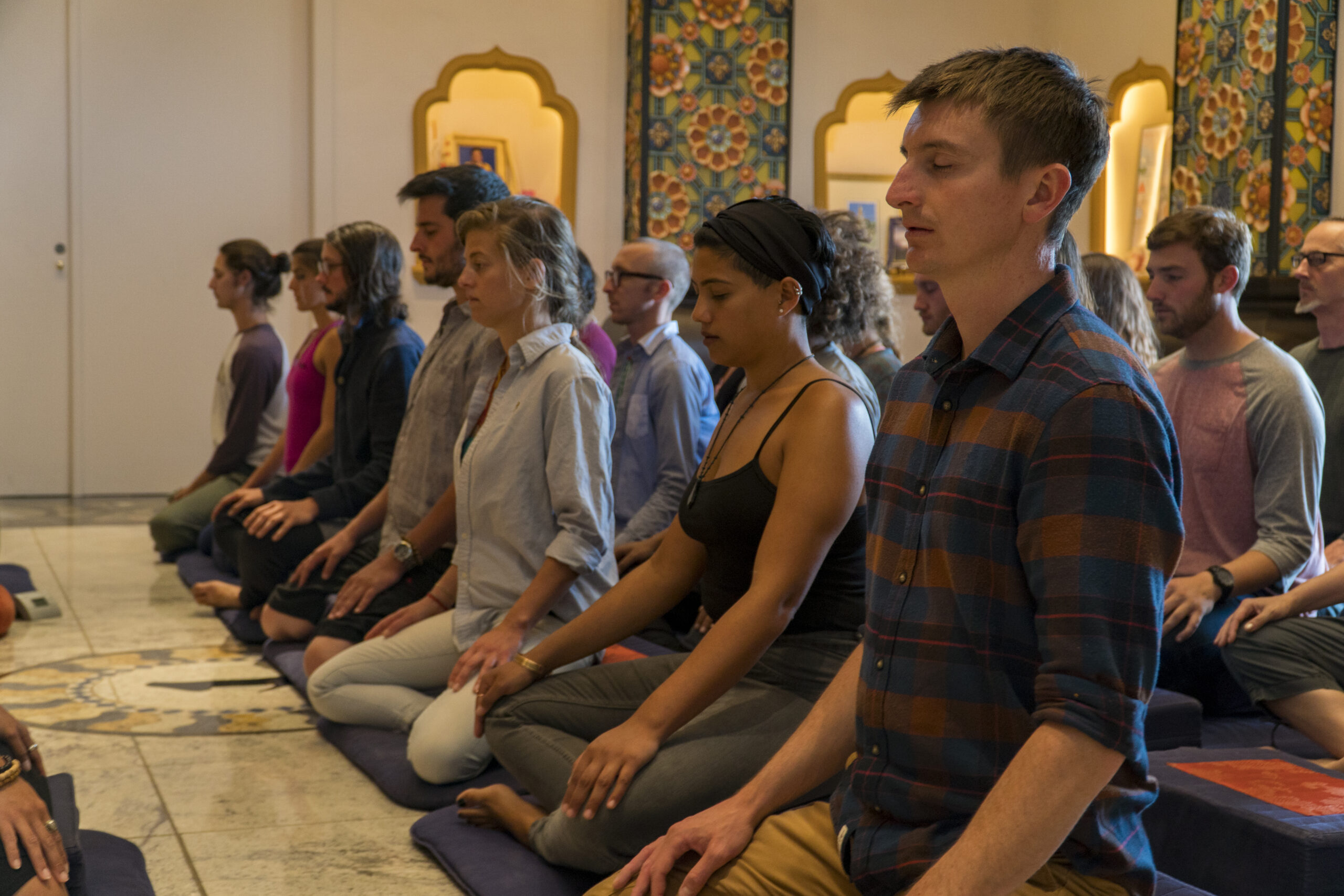The Science of Meditation: Recalling the Shamatha Project at SMC
In 2007 the most comprehensive longitudinal study of meditation occurred here at Shambhala Mountain Center. It was called the Shamatha Project.
Researchers from UC Davis teamed up with B. Alan Wallace and 60 participants for two 3-month retreats in which the meditation practitioners participated in an intensive study to record and analyze the effects of meditation.
B. Alan Wallace instructed the participants in three increasingly subtle forms of shamatha (calm-abiding meditation) as well as a complementary practice to cultivate compassion, loving-kindness, empathetic joy and equanimity called the brahmavihāras or Four Immeasurables. Through shamatha the participants developed concentration, mindfulness and introspection while the Four Immeasurables created an ethical motivation and context for practice.
The study employed a variety of measurement techniques taken before, during and after the retreat, including interviews, computer-based experiments, physiological measures, behavioral measures, and questionnaires.
This led to a tremendous amount of data that is still being analyzed 9 years later. But a number of conclusions have been made: meditation improves attention, one’s sense of well-being, emotional responses related to compassion, and even increased telomerase activity, suggesting meditation may actually make you live longer.
Lead researcher Cliff Saron gave a very interesting TEDx talk about the Shamatha Project at UC Davis in 2012. His talk brings to life the scientifically proven benefits of meditation while maintaining a ground in the critical human element. Check it out:
Shambhala Mountain Center hosts Summer Dathun: A Month-long Meditation Retreat, June 11 – July 9, 2016 — click here to learn more
Also: Check out these related posts on the SMC Blog:
- The Shamatha Project, Part I
- The Shamatha Project, Part II: Collecting Data
- The Shamatha Project, Part III: Forging Ahead
- The Shamatha Project, Part IV: Background & Far Reaching Implications
About the Author








